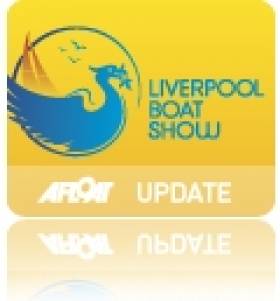Displaying items by tag: Albert Dock
There were no serious injuries when more than 30 passengers were plunged into the water in Albert Dock in Liverpool after the Yellow Duckmarine's "splashdown" landing - where it drives down a ramp into the water - went wrong.
LIverpool's North West Ambulance service confirmed all passengers were evacuated safely after the incident at around 4pm yesterday afternoon.
Large crowds gathered around the scene, while several police and ambulance response vehicles rushed to help with the rescue operation led by the fire service.
The passengers were moved onto a pontoon as the boat began slowly sinking.
Amateur video (as above) from the scene purportedly shows passengers in life jackets swimming away from the yellow boat to the shore.
Passers-by can be seen throwing life rings to the passengers in the water.
The submerged yellow vessel can just be seen in the video behind a narrow boat.
This video has no audio Sources: PA
Mersey's Biggest Sailing Event to be Staged at Liverpool Boat Show
About 150 boats will compete in a series of spectacular races on each of the two weekends of the show, which takes place from April 29 to May 8 next year.
Up to three races will be held each day on the weekends of April 30 and May 7, with classes for modern racing yachts, ultra-fast multi-hulls, local classes and traditional nobbys.
The regattas – comprising the Royal Dee Yacht Club Spring Regatta and the Liverpool Yacht Club Kindred Clubs Regatta – will be one of the main highlights of the Liverpool Boat Show, which takes place in the splendid surroundings of the Albert Dock.
Competitors from across the UK and Ireland are expected to take part in the regattas, which will see boats racing against each other on courses in front of the Albert Dock.
Today organisers urged enthusiasts and clubs to submit their entries for the races to secure a place in one of the most spectacular sailing events of the year.
Alastair Soane, chair of the race committee, said: "This will be the biggest sailing event for probably 70 or 80 years on the River Mersey and interest is already very high."
Alastair Soane, a past Commodore and President of Liverpool Yacht Club who sits on the steering committee of the boat show, added: "We already have expressions of interest from clubs and individuals in Scotland, Wales and Ireland and we are keen to get representation from the sailing fraternity right across the UK, including the South coast.
"The combination of the festival atmosphere of the show and the spectacle of the racing will make these truly unique events and we'd urge potential participants to register as soon as possible."
A number of North West clubs are supporting the regattas, including Liverpool Yacht Club, the Royal Mersey Yacht Club, the Royal Dee Yacht Club, West Kirby Sailing Club, Wallasey Yacht Club, Dee Sailing Club, Blundell Sands Sailing Club, Liverpool Sailing Club, Hoylake Sailing Club, West Lancs Sailing Club and the Nobby Association.
Mr Soane said: "The entire North West sailing community is throwing its weight behind the Liverpool Boat Show and we are determined to make it a show like no other and to showcase to a whole new generation the pleasure and benefits to be had from sailing."































































